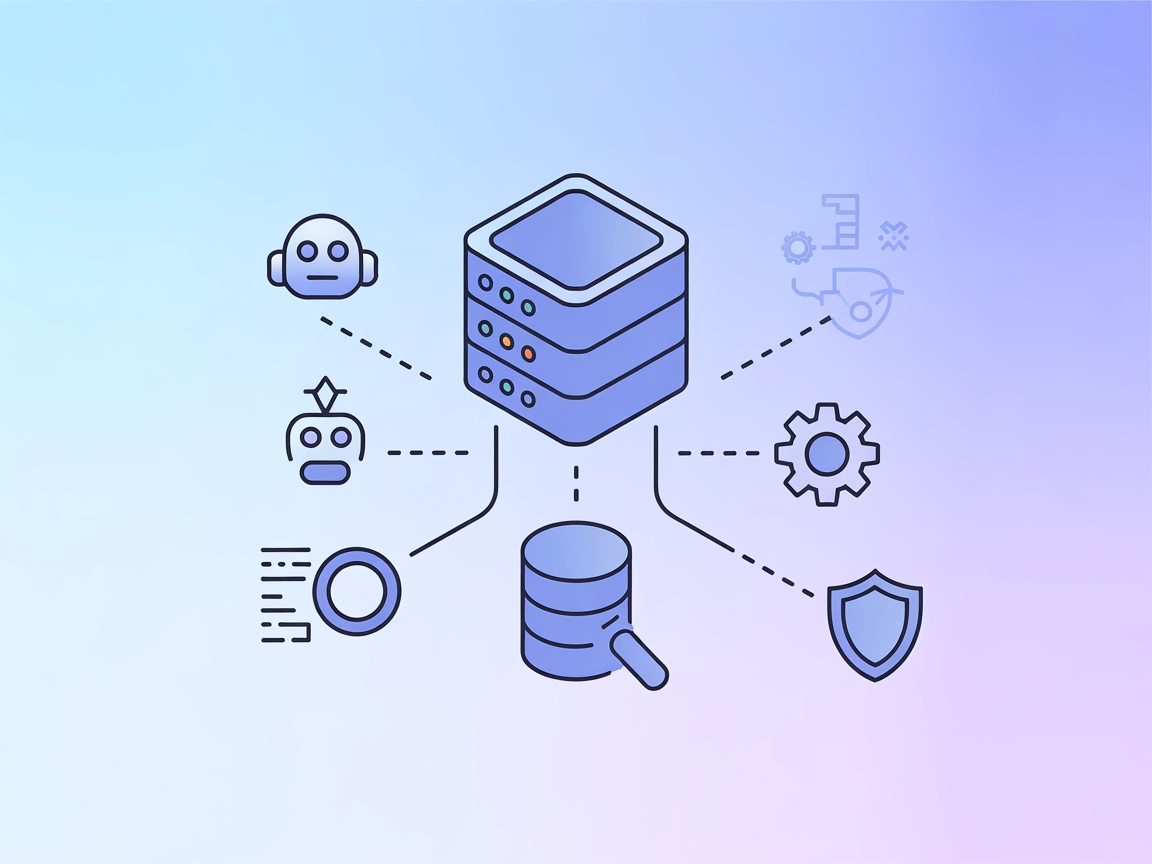
Elasticsearch MCP Server
The Elasticsearch MCP Server bridges AI assistants with Elasticsearch and OpenSearch clusters, enabling advanced search, index management, and cluster operation...

Integrate your AI workflows with Meilisearch using the Meilisearch MCP Server, providing secure, dynamic, and automated management of search indexes, documents, settings, and API keys.
FlowHunt provides an additional security layer between your internal systems and AI tools, giving you granular control over which tools are accessible from your MCP servers. MCP servers hosted in our infrastructure can be seamlessly integrated with FlowHunt's chatbot as well as popular AI platforms like ChatGPT, Claude, and various AI editors.
The Meilisearch MCP Server is a Model Context Protocol (MCP) server that enables seamless interaction between AI assistants (such as LLMs) and a Meilisearch instance. Acting as a bridge, it allows AI-driven clients to perform database operations—like managing indexes, documents, settings, and API keys—directly from their interface. The server supports dynamic connection configuration, built-in logging, and smart search across indices. This integration streamlines workflows for developers, letting them automate and monitor search infrastructure tasks using natural language or workflow automation tools.
No prompt templates are directly mentioned in the repository or documentation.
No explicit MCP resources are described in the available documentation or files.
get-connection-settings)."mcpServers": {
"meilisearch-mcp": {
"command": "meilisearch-mcp",
"args": [],
"env": {
"MEILI_HTTP_ADDR": "http://localhost:7700",
"MEILI_MASTER_KEY": "your_master_key"
}
}
}
CLAUDE.md file for additional Claude-specific integration steps if available."mcpServers": {
"meilisearch-mcp": {
"command": "meilisearch-mcp",
"args": [],
"env": {
"MEILI_HTTP_ADDR": "http://localhost:7700",
"MEILI_MASTER_KEY": "your_master_key"
}
}
}
"mcpServers": {
"meilisearch-mcp": {
"command": "meilisearch-mcp",
"args": [],
"env": {
"MEILI_HTTP_ADDR": "http://localhost:7700",
"MEILI_MASTER_KEY": "your_master_key"
}
}
}
"mcpServers": {
"meilisearch-mcp": {
"command": "meilisearch-mcp",
"args": [],
"env": {
"MEILI_HTTP_ADDR": "http://localhost:7700",
"MEILI_MASTER_KEY": "your_master_key"
}
}
}
Securing API Keys
Always use environment variables to store sensitive data like API keys. Example:
"env": {
"MEILI_HTTP_ADDR": "http://localhost:7700",
"MEILI_MASTER_KEY": "your_master_key"
}
You can also use "inputs" if supported by your platform for additional runtime secrets.
Using MCP in FlowHunt
To integrate MCP servers into your FlowHunt workflow, start by adding the MCP component to your flow and connecting it to your AI agent:

Click on the MCP component to open the configuration panel. In the system MCP configuration section, insert your MCP server details using this JSON format:
{
"meilisearch-mcp": {
"transport": "streamable_http",
"url": "https://yourmcpserver.example/pathtothemcp/url"
}
}
Once configured, the AI agent is now able to use this MCP as a tool with access to all its functions and capabilities. Remember to change “meilisearch-mcp” to whatever the actual name of your MCP server is and replace the URL with your own MCP server URL.
| Section | Availability | Details/Notes |
|---|---|---|
| Overview | ✅ | |
| List of Prompts | ⛔ | No prompt templates found |
| List of Resources | ⛔ | No explicit resource definitions found |
| List of Tools | ✅ | Index management, settings, monitoring, connection config tools |
| Securing API Keys | ✅ | Environment variable usage and documentation |
| Sampling Support (less important in evaluation) | ⛔ | Not mentioned |
| Supports Roots | ⛔ | Not mentioned |
|---|
The Meilisearch MCP server provides robust tooling for Meilisearch automation and LLM integration, with comprehensive setup and security documentation. However, the absence of explicit prompt templates/resources and unclear support for Roots/Sampling slightly limits its flexibility for some advanced use cases.
| Has a LICENSE | ✅ (MIT) |
|---|---|
| Has at least one tool | ✅ |
| Number of Forks | 14 |
| Number of Stars | 95 |
Rating:
I would rate this MCP server a solid 7/10. It covers critical developer needs for Meilisearch automation and LLM workflows, with clear documentation and support for key tools, but lacks some advanced MCP features and explicit resource/prompt definitions.
The Meilisearch MCP Server is a bridge between AI assistants and Meilisearch, enabling automated database operations, index management, settings configuration, and API key control directly from AI-driven workflows or tools.
You can automate creating, updating, and deleting indexes and documents, configure search settings, manage API keys, and monitor tasks—streamlining content and search infrastructure management.
Always use environment variables to store sensitive data like API keys. The MCP server supports dynamic connection configuration and secure key management, allowing you to rotate or revoke credentials as needed.
Yes, the MCP server supports dynamic multi-instance switching, allowing you to update the connection URL and API key at runtime for flexible development, testing, or multi-environment management.
No explicit prompt templates or MCP resource definitions are provided by default, but comprehensive tooling for index and document management is available.
Enhance your search automation and AI integration by connecting FlowHunt to your Meilisearch instance through the robust MCP Server.

The Elasticsearch MCP Server bridges AI assistants with Elasticsearch and OpenSearch clusters, enabling advanced search, index management, and cluster operation...

The OpenSearch MCP Server enables seamless integration of OpenSearch with FlowHunt and other AI agents, allowing programmatic access to search, analytics, and c...

The Model Context Protocol (MCP) Server bridges AI assistants with external data sources, APIs, and services, enabling streamlined integration of complex workfl...
Cookie Consent
We use cookies to enhance your browsing experience and analyze our traffic. See our privacy policy.